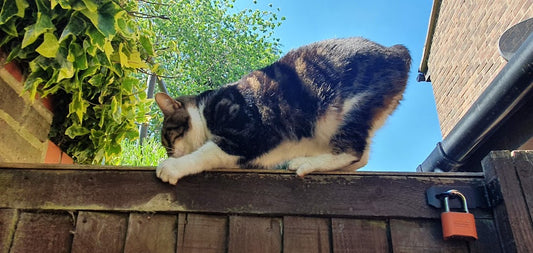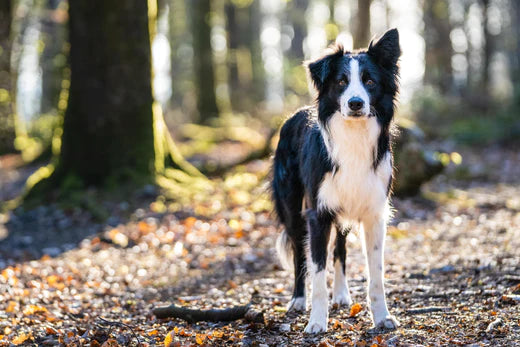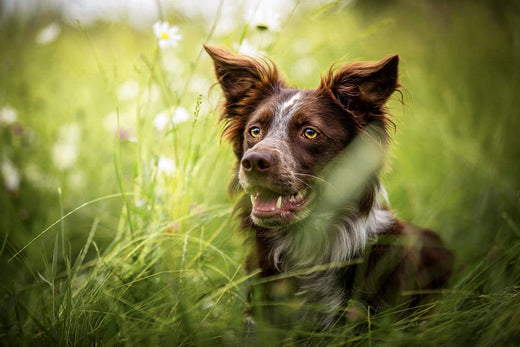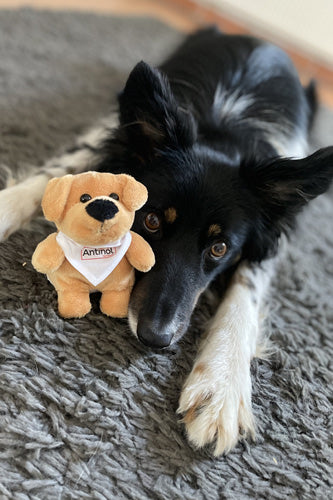You can’t help but melt when you look into the doleful eyes of a grey-muzzled old dog. Senior pets are at the heart of all we do here at VetzPetz, and many of the team have an older dog in their family.
So what is so good about adopting an older dog? Will they fit into your family? Do they need any extra care, and what should you consider when thinking about adopting a senior dog?
When is a dog a senior dog?
The average life expectancy of a dog is 11 years, according to research published in Nature. However, there are so many factors that impact that number that it’s difficult to define for each dog. Breed, weight, health condition and lifestyle are all major players in a dog’s life expectancy. But if we lump dogs into size groups, then small dogs are senior at around 11, medium at about 9 and large dogs at about 7.
However, in most cases, dogs' needs change at a younger age than this, hence why many dog foods recommend changing to a “senior diet” at around 7 years old.
Are older dogs less likely to be adopted?
Around 20% of the UK dog population were adopted from rescue centres but it can take three times longer for them to find new homes compared to puppies and young dogs.
5 reasons to adopt a senior dog
Need some more convincing that adding an older dog to your family is a good idea? Here are 5 reasons that adopting a senior dog is a great decision.
#1 - You know what you’re getting
They’re already fully grown, so you won’t be surprised by them growing bigger than you expected. The rescue centre will have assessed them and may even have their full history from previous owners. They’ll also have had a health check. You’ll have a good idea of what to expect from them in terms of behaviour, temperament and even health. Of course, it will take time for them to settle with you and grow in confidence and personality, but it’s a good starting point.
#2 - Clean floors and carpets - no house training
Unless they have been a lifelong stray, most rescuer dogs will already be partially toilet trained—in many cases, they’ll be fully house trained. No carpets destroyed, or constant cleaning of floors when they have accidents. They'll also likely have some basic training and understand simple obedience commands.
#3 - They’re less demanding
Puppies are FULL ON. They’re full of energy, bounding about and demanding your attention constantly. Older dogs live life at a more relaxed pace. Of course, they’ll have their moments of madness, and certain breeds will be livelier than others—but as a general rule, older dogs will have lower energy levels. They'll be happier to settle down for a snuggle, and boy, can senior dogs cuddle!
#4 - Old dogs CAN learn new tricks
The old adage, “you can’t teach an old dog new tricks”, is rubbish! Of course, you can. And a senior dog will love the challenge of learning something new. Sign up for training classes, or even try a canine sport like flyball or agility to keep their mind and body active.
#5 - They have plenty of love left to give
Just because they’re older doesn’t mean they’re on their way out. However long they have, every dog deserves a chance to love someone. Once you’ve built their trust, you’ll find they are brimming over with love and loyalty. Their favourite place in the world will be by your side.
How to keep your senior dog healthy
-
Regular vet checks
Keep on top of your elderly dog’s vaccinations and parasite treatment to keep them in the best health. Your vet will also check their teeth and joints. They may even run blood tests to check their overall health and give you advice to support their long-term health.
-
The right diet
When a dog hits 7, their nutritional needs begin to change, and you should consider a senior dog diet that is specially formulated to support them as they age. Look for a diet containing high-quality protein that's packed with antioxidants and has controlled mineral levels and added omegas, to support their long-term health.
-
Support their joints
Over 80% of dogs aged 8+ would benefit from joint support. Looking after your senior dog’s joints is vital to ensuring they can live an active, happy life. Adding a high-quality, science-backed supplement to their day will support their lifelong joint health and quality of life. Keep a spring in their step.
-
Pamper them
As dogs age, they find it more difficult to groom themselves. So treat them to regular sessions at the salon, or give them a good brush and regular bath to keep them looking and feeling fabulous.
-
Make things easy
Jumping into the car and zooming around on hard floors can be challenging for older dogs. Make things easy for them with a dog ramp into the car. No more huge leaps. If you have hard floors, consider carpet or putting down some rugs. Slippery floors are hard for dogs of all ages to manage, but you want to support your older dog’s mobility as much as possible, so covering slippery surfaces will help prevent slips and slides.
Where can I adopt a senior dog?
If you have space in your home and heart for an older dog, visit your local animal rescue. They will be very excited to introduce you to some more elderly residents looking for love.
Adoption fees vary, but you can expect to pay around £200, which will help support the work your adoption centre does to protect dogs and cats in your area. Keeping them safe, healthy and off of the streets until someone like you comes along.









